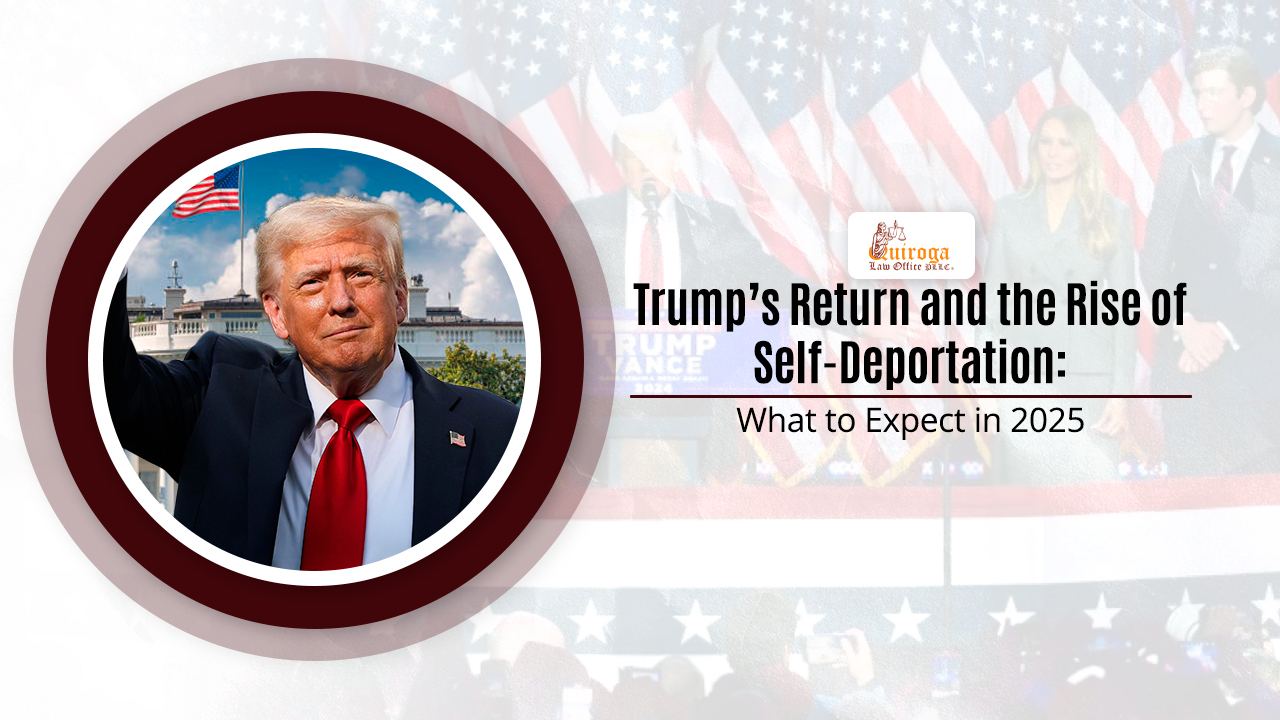The United States is entering a period of immigration uncertainty. Donald Trump’s return to the White House in 2025 has raised concerns among undocumented immigrant communities. Recent history suggests that his administration’s policies could significantly increase self-deportation requests, as seen in 2017.
What Is Self-Deportation and Why Does It Matter?
Self-deportation, legally known as voluntary departure, allows undocumented immigrants to leave the United States voluntarily before facing formal deportation proceedings. This option offers critical advantages, such as avoiding the severe penalties of formal deportation, including a reentry ban of up to 10 years.
According to immigration attorney Héctor Quiroga, CEO of Quiroga Law Office, PLLC, voluntary departure is particularly beneficial for individuals with clean records who aim to return to the U.S. However, it is not a universal solution—it applies only to those who meet specific legal and financial requirements.
The Impact of Trump’s Policies in 2017
In 2017, during Trump’s administration, stricter immigration policies led to a 36% increase in voluntary departure requests. Data from TRAC Immigration shows that requests rose from 9,000 cases in 2016 to 14,000 in 2017. This occurred amidst widespread immigration raids and a political climate that instilled fear in immigrant communities.
In contrast, under Joe Biden’s administration, voluntary departure requests plummeted. In 2021, only 5,000 cases were recorded, a 70% decrease compared to Trump’s final year in office. However, the trend has begun to reverse: by 2024, 8,000 requests were reported, signaling a return to uncertainty.
Will 2025 Mirror 2017?
Trump’s potential return to office could usher in stricter immigration policies, bolstered by his “Project 2025,” a plan emphasizing conservative measures against undocumented immigrants. Experts, including attorney Quiroga, predict a significant rise in self-deportation requests during the early months of a second Trump term.
This phenomenon reflects not only the impact of immigration policies but also widespread fear within immigrant communities. Entire families may choose voluntary departure to avoid being separated during mass raids or deportation proceedings.
The Legal Process of Self-Deportation
Voluntary departure can be requested at various stages of the immigration process:
- Initial Stage: An immigration officer may offer this option before formal deportation proceedings begin.
- During Court Proceedings: A judge may grant voluntary departure if the immigrant waives their right to appeal.
- Final Stage: The Department of Homeland Security (DHS) may approve voluntary departure after evaluating the application and the case’s circumstances.
For those considering this option, specialized legal counsel is essential. Attorney Quiroga warns that making this decision without proper guidance can lead to unexpected and long-term consequences.
Do You Need Legal Assistance?
At Quiroga Law Office, PLLC, we understand how challenging it can be to face these decisions. Our team is here to help you explore your options and protect your rights. Contact us today to schedule a consultation.
Click here or call us at (509) 927-3840. We are committed to defending your rights and helping you build a safer future.



